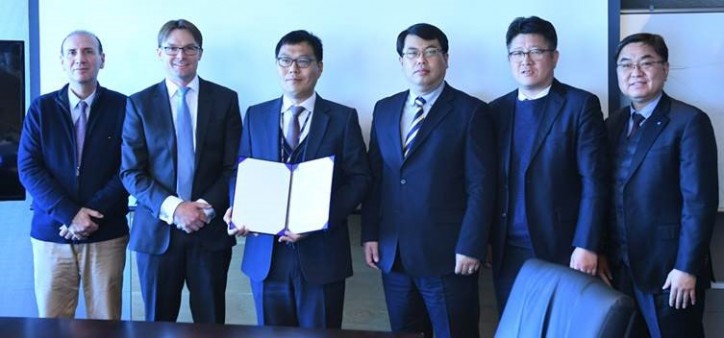Hyundai Heavy Industries (HHI) has received approval in principle (AiP) from Lloyd's Register (LR) for an LNG-fuelled 250,000 dwt class very large ore carrier (VLOC).
Following the announcement of the IMO’s SOx emission limitations from 2020 and increased developments in the global supply of gas, there has been a growing demand for innovative and environmentally friendly designs to replace traditional oil-fuelled ship designs. In response to this, HHI has been focusing its efforts on LNG-fuelled ships as part of its plans to meet the market's needs for environmentally friendly shipping.

Anangel, Woodside, LR and HHI commenced a joint development project (JDP) last year to develop an LNG-fuelled 250,000 dwt VLOC design optimised for the trade route from North West Australia to North Asia, based on the XDF engine. The JDP’s main objective is to achieve the lowest practical incremental capital and operating costs to help LNG as a fuel compete against other post-2020 compliance options for bulk carriers.
Anangel as the ship owner and operator provided practical advice on the design concept from its extensive fleet operation experience. Woodside as the LNG supplier provided information on the outlook for LNG bunkering infrastructure in the region and outlook for LNG against other fuels. LR facilitated the high-level hazard identification (HAZID) in order to identify the major hazards and verify the safety of the vessel design. HHI completed the optimised design of the VLOC with the LNG-fuelled system, and LR provided class approval and issued AiP to HHI.
Recently all JDP members reviewed an in-depth economic evaluation of the LNG-fuelled system against a wide range of ultra-low sulphur marine fuel oil prices to assess the competitiveness of LNG-fuelled bulk carriers and exchange ideas on what could be done to help advance the use of LNG as a fuel. The preliminary results show promise for LNG as a fuel opportunities.
The parties are now discussing the potential for a further phase of the JDP, including additional partners, in order to increase the feasibility and attractiveness of LNG as a fuel through new technologies, reduced capital cost and increased operating efficiency.
Source: LR